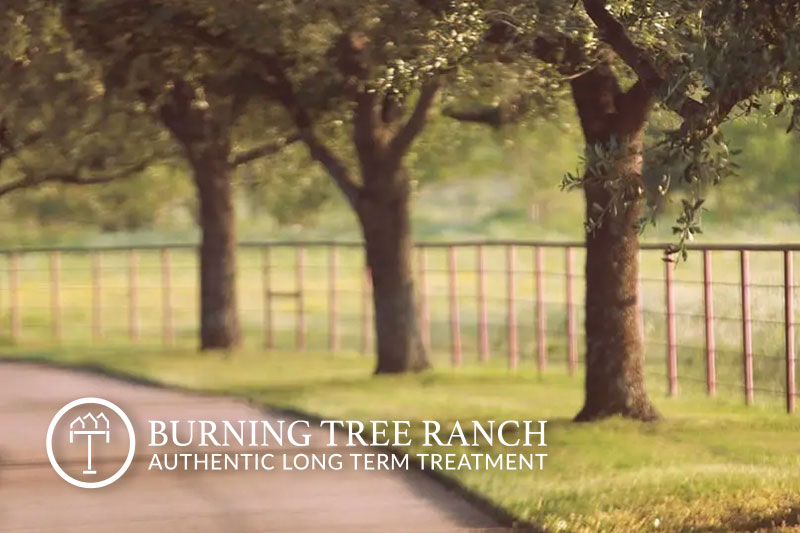Why Do Family Office Executives Trust Burning Tree?
Because addiction threatens financial planning and investments.

You Manage Wealth and Help Resolve Financial Crisis
As a Family Office Executive, you oversee more than investments. You protect the family’s values, reputation, and long-term goals.
Crisis signs you might notice:
- Family member's substance use affecting decision-making
- Financial irregularities or concerning spending patterns
- Relationship conflicts threatening family unity
- Reputation risks from behavioral issues
Your Role Matters.
You may be the first to notice when substance use disorder begins to erode the family structure, and the best person to guide them toward help.
Referring families to appropriate help can:
- Preserve family wealth and reputation
- Strengthen family relationships
- Protect long-term legacy goals


When Should You Consider Long-Term Treatment?
Consider action if a family member is:
- Depleting funds or engaging in erratic spending behavior
- Neglecting responsibilities in a family-owned business
- Facing legal issues like DUIs or lawsuits related to substance use
- Causing division, conflict, or concern among other family members
- Visibly declining in health, hygiene, or decision-making capacity
These warning signs impact more than just the individual—they risk the family’s long-term harmony, reputation, and financial legacy.
How Can You Help Manage the Crisis?
While you’re not a therapist or clinician, you are:
- A steward of the family’s stability
- A trusted advisor who can coordinate sensitive interventions
- An advocate for both discretion and accountability
“Addiction doesn’t just disrupt an individual—it shakes the foundations of an entire family. Executive leadership matters in moments like these.”
Brook McKenzie, LCDC
CEO, Burning Tree Programs

Why Do Finance Professionals Refer to Burning Tree?
Burning Tree Ranch offers the nation’s only long-term inpatient treatment program—specifically designed for chronic relapse, dual diagnosis, and high-accountability recovery.
We specialize in working with complex, high-net-worth families, offering:
- 8–14 months of clinically structured residential care
- 12 months of aftercare and reintegration support
- Confidential communication with family office professionals
- A team experienced in high-stakes, legacy-driven family systems
We work alongside you—not around you—to support recovery with lasting impact.


How Can You Handle the Conversations About Treatment Options?
You can help guide recovery conversations by:
- Connecting treatment to family values, such as health, legacy, and unity
- Educating on the risks of untreated addiction—financial loss, reputational damage, and health deterioration
- strong>Personalizing the impact, showing how the individual’s choices affect business, wealth, and relationships
- Reinforcing the upside of recovery—restored trust, meaningful roles, and long-term family harmony
How Can You Use Financial Planning as Motivation?
Family Office Executives can collaborate with legal and financial advisors to:
- Establish conditional access to family funds based on treatment milestones
- Incorporate treatment-based stipulations into trusts or estate plans
- Coordinate and fund premium care using family assets, removing financial or logistical barriers
- Organize family meetings that promote unity and support recovery
- Monitor progress discreetly, maintaining accountability while respecting privacy
With the proper structure, the decision to enter treatment becomes viable and aligned with the family’s vision for the future.

Ready to Start the Conversation?

If a family member’s addiction is threatening more than just their health, we’re here to support your next step—with discretion, clarity, and care.
Have a referral?
I’d be happy to help.
Call or submit an inquiry, and feel free to request me directly.
Brook McKenzie, LCDC
CEO, Burning Tree Programs
“Burning Tree not only saved my sons life they gave him a life we could have only imagined. It was his last chance since all other programs had failed. Our lives had been a living hell. They educate the entire family and you will never find a more understanding or compassionate group of people dedicated to your loved ones recovery.”
Lisa M.
Family of Burning Tree Alumni
Have a Referral?
If you suspect a client is facing a crisis bigger than balance sheets, we’re here to help. Confidentially, ethically, and without pressure.
